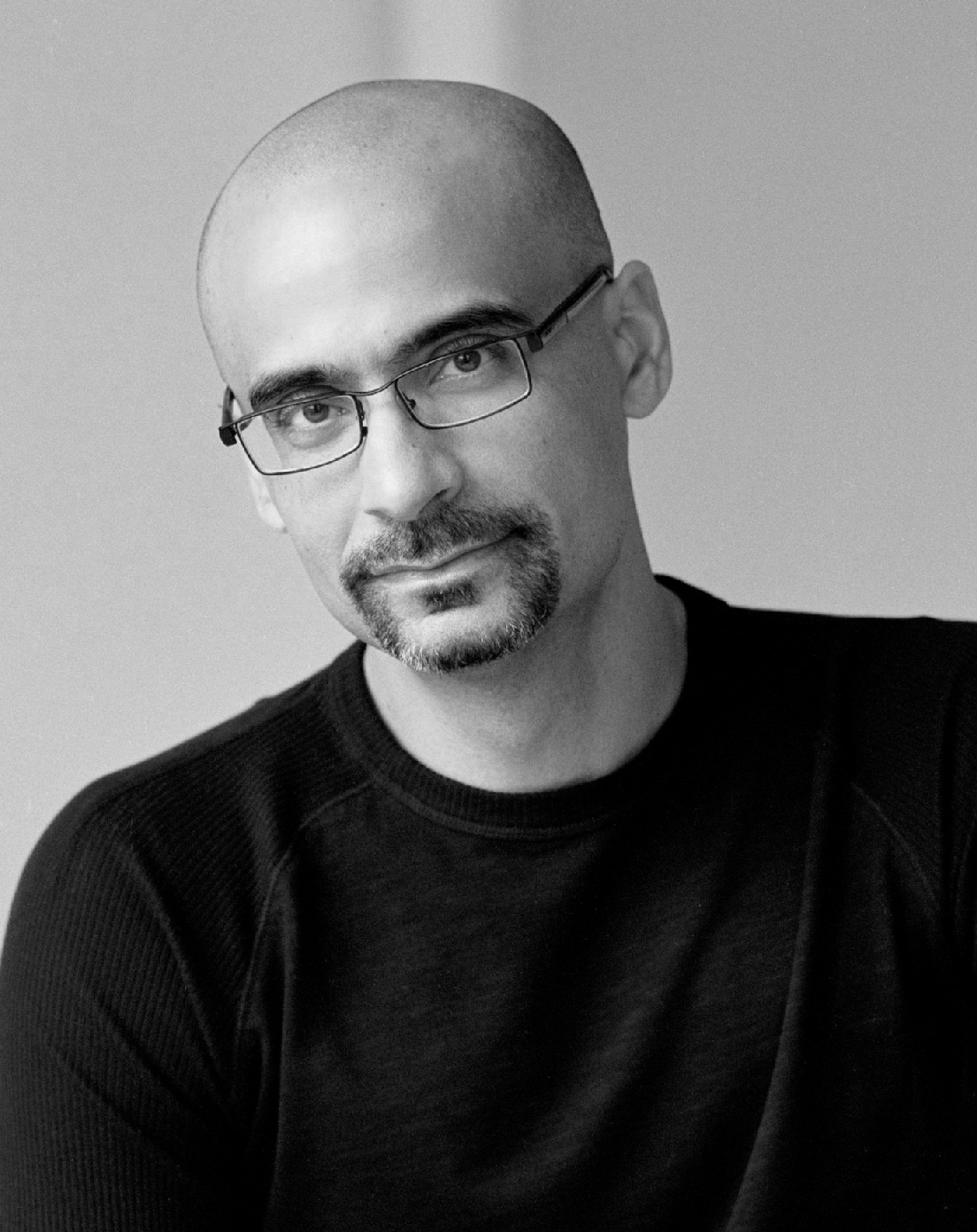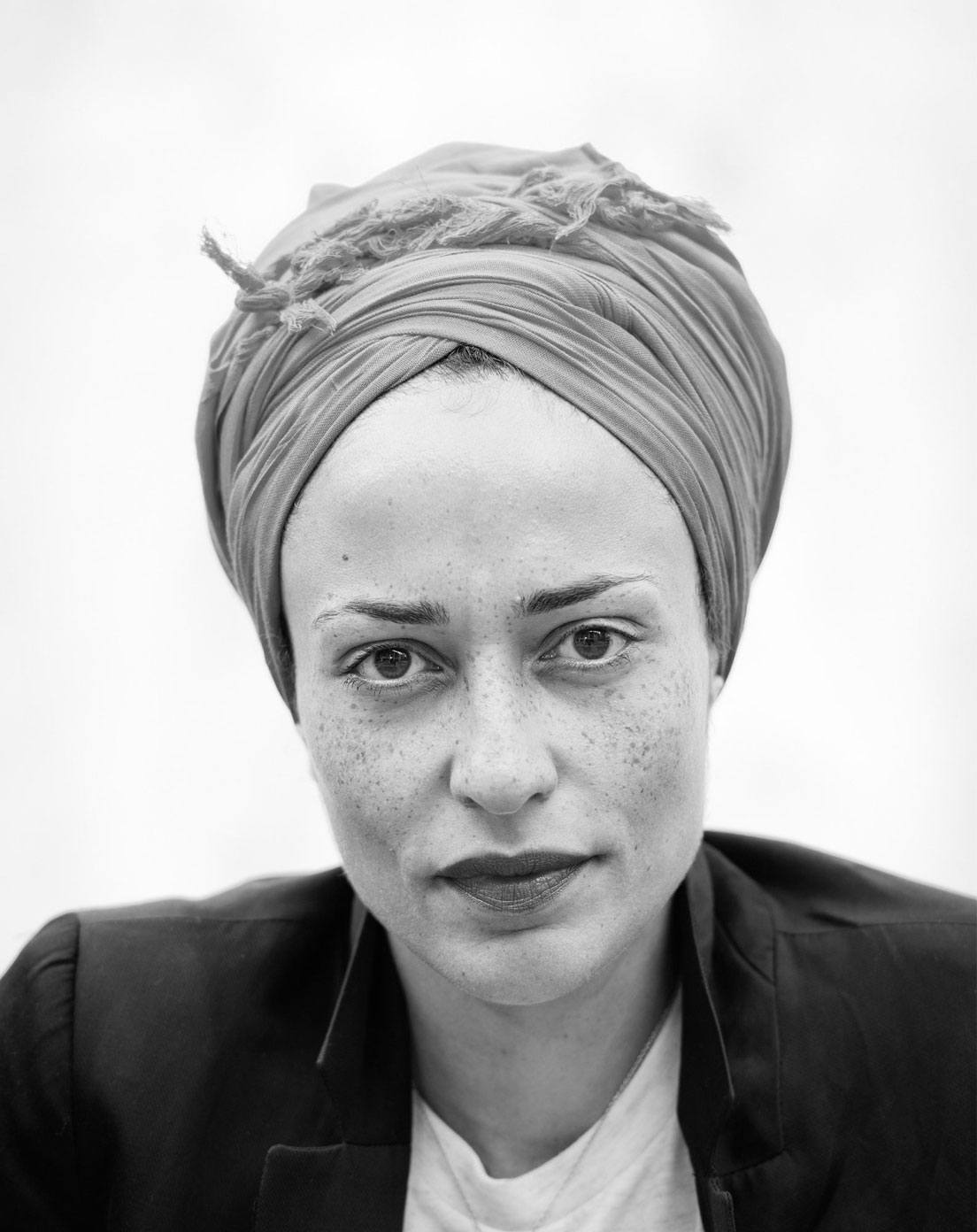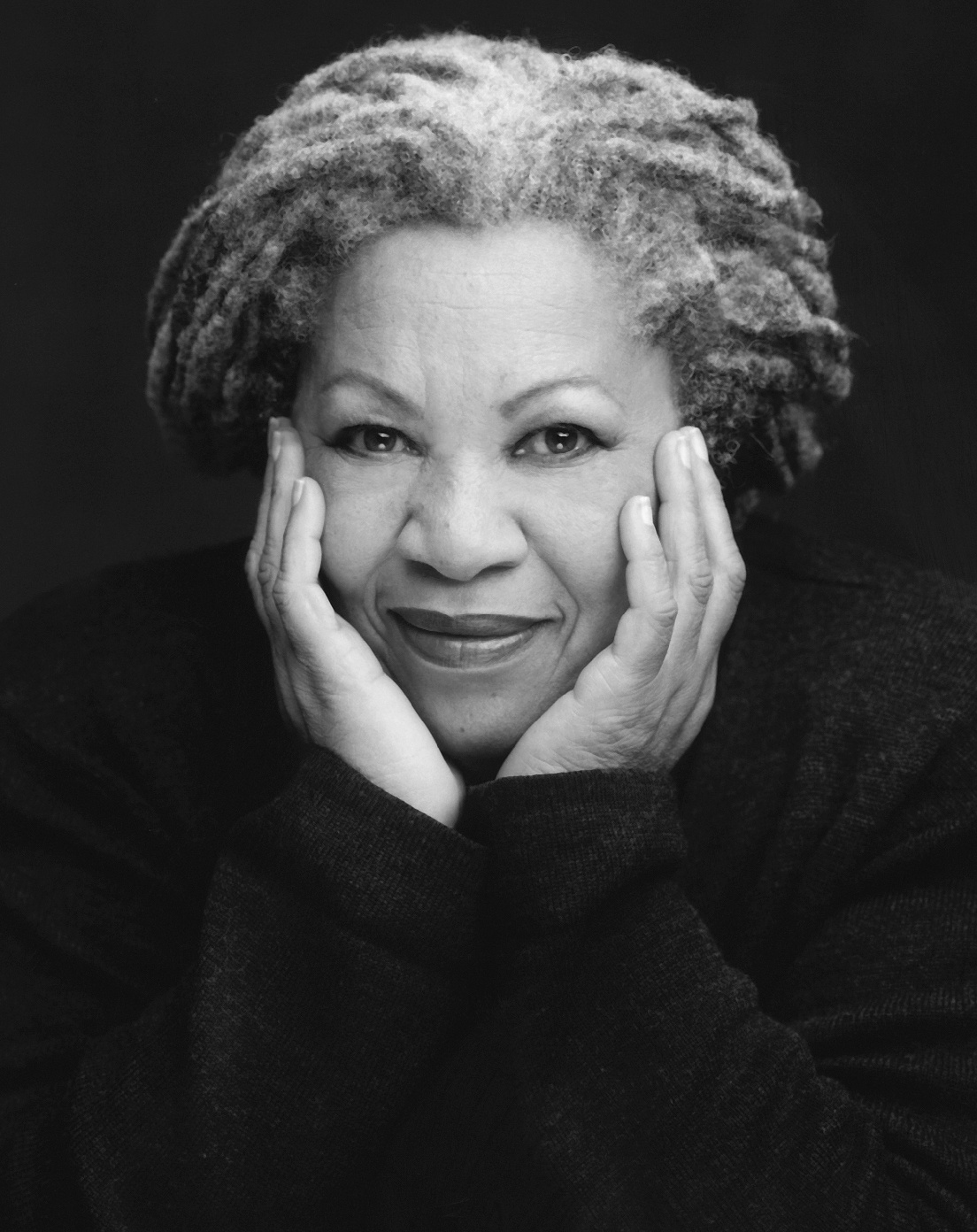Langston Hughes would have turned 100 this year and in a fitting tribute to his life and literary contributions, the Library of Congress selected two poets—Dolores Kendrick and Evie Shockley—to read selections of his work and discuss Hughes’ influence on their own writing. Take a look.
Month: March 2012
We’re continuing our look back at Langston Hughes this week by featuring some audio of his work. Listening to his works (particularly the second and third, which Hughes reads himself) evokes different reactions than reading them – take a listen and let us know which one is your favorite in the comments below.
“The Dream Keeper + Dreams”
“A Negro Speaks Of Rivers” (Here Langston Hughes reads his own work)
“I, Too” (Here Langston Hughes reads his own work)
Each week, we’ll be helping you to get to know our winners better (what a great bunch they are) and highlighting the best of their work, interviews and essays. This week we’re highlighting Langston Hughes, 1954 winner for fiction.
This mini-bio of Langston Hughes talks about his prolific writing career and how he was one of the first African American writers to support himself solely through his work.
It’s always a question of whether the story will come when a writer sits down to begin a work and for Nicole Krauss, it’s always a mystery. In an interview with Interview magazine, she talks about her strengths as a writer:
Part of the work of writing a novel is to uncover these symmetries or connections that make it whole, which might not reveal itself at first. I have a very strong sense of architecture in my novels. But, yes, at first it’s sometimes like it’s like building a doorknob before you have a door, and a door before you have a room.
When asked about her writing process for Great House, she admits that this is her favorite part of her job:
On different days I would work on different sections and sometimes I would get really absorbed into one voice and I would write that for some months, come to a close, and then open another back up again. What interests me very much as a writer is the ability for writing to have our lives to be occupied so vividly by others. I think that’s what we long for as writers and that’s the unique thing that literature provides: To be able to step so fully into another situation and condition.
Read the rest of the interview here, under A Conversation.
“I have to care so much about something if I’m going to sit and write about for a couple of years. There’s enough books in the world already, there’s no reason to make another one. Unless there’s a feeling that’s incredibly pressing. That’s the reason why you write.”
Nicole Krauss sits down in this brief interview with the Sundance Channel to discuss what commonalities exist between her characters and why she, and other writers, feels the pull to write.
Each week, we’ll be helping you to get to know our winners better (what a great bunch they are) and highlighting the best of their work, interviews and essays. This week we’ll be focusing on Nicole Krauss, 2011 winner for fiction.
Even some of the most celebrated writers of our time struggle with doubt from time to time. How do they know if their work will resonate with readers? Do they aim for writing an award-winning book each time they sit in front of the keyboard or do they just wish for an authentic voice or story to guide them to completion? Nicole Krauss, author of three novels and a National Book Award finalist, wrote an unflinchingly honest essay on her story writing process and whether she ever feels a story will be successful as soon as she starts:
I begin my novels without ideas. I don’t have a plot, or themes, or a sense of the book’s form. Often I don’t even have a specific character in mind. I begin with a single sentence of no great importance; it almost certainly will be thrown away later. To that sentence I add another, and then another. A little riff emerges. If it’s going well–and it’s hard for me to say exactly what going well means, beyond the writing feeling authentic enough not to require immediate erasure–I’ll continue this sort of aimless unspooling. If I’m lucky, as the paragraphs accumulate, a compelling voice will emerge. Though often I will write twenty or thirty pages before I realize that in fact the voice lacks what might be called the “Pinocchio” element: the chance of becoming truly alive and “real.”
It’s unnerving not to know what I’m writing, or why, or where it will go. Scary, even, as time passes, and more and more work accumulates without an accompanying sense of clarity. A hundred or even two hundred pages in, and I am more lost than ever.I find myself worrying constantly that the work will fail. In my last novel, The History of Love, the potential of that failure became, itself, a theme of the novel–one of the main characters, Leo Gursky, is a failed writer.
Great House is my third novel, and so when I began it I already had some sense of what my writing process would be like. Yet my uncertainty was more acute than ever. The starting points I chose, which I knew would have to converge and cohere, were almost impossibly remote from one another. From out of all the early writing, four voices emerged, each with its own story: an American writer, Nadia, who has been writing for twenty-seven years at a desk she inherited from a Chilean poet who later disappeared; an overbearing Israeli father addressing his estranged son who has returned home after decades abroad; a retired Oxford don, who, in the final years of his wife’s life, discovers a secret she kept from him all their marriage; and a young American woman who tells the story of a Hungarian antiques dealer and his two adult children, whom she comes to live with in a darkly magical Victorian house in London. I had four different paths, and all I knew was that 1) I wanted to understand who these people were and what had made them that way, and 2) woven together, their stories could make a solid and intricate whole, that their juxtaposition would reveal patterns, and form a complete architecture–even, or especially, if I couldn’t anticipate that architecture. I was building a house–a city–without a blueprint.
Read the rest of the essay here in the essay, On Doubt.
How do we change the face of education worldwide? Is it simply a matter of producing better teachers? Donating money for repairs and renovations of some of the most dilapidated schools? Is it by working more closely with parents? Staff at the Open Society Foundations decided that an conversation on worldwide education had to start with a conversation on culture. They tapped several writers to contribute to the project—Chimamanda Adiche (writing on Nigeria), Aleksander Hemon (on Bosnia), Tahmima Anam (on Bangladesh), Petina Guppah (on Zimbabwe), Nathalie Handal (on Haiti), Rachel Holmes (on Palestine), Nick Laird (on Nepal), Kamila Shamsie (on Pakistan), Hardeep Sing Kholi (on India), and Zukisa Wanner (on South Africa).
Zadie Smith (also an Anisfield-Wolf award winner) wrote the introduction to the series. In the video above, Kamila talks about her initial reactions to the project and what she hopes others will get out of it.
To see the essays in their entirety, visit Guernica magazine’s website.
Kamila Shamsie spent most of her formative years living in Karachi, Pakistan, a sprawling city on the coast where “you can live your entire life without ever glimpsing the sea.” Shamsie gives a wonderfully poetic description of her hometown in the latest issue of Newsweek:
If there’s one word used more often than others to characterize the city by those who love it, it’s “resilience”—the ability to endure suffering without breaking—but Karachi is full of broken people who have long since ceased to be astonished at discovering new ways to break. And the unbroken develop carapaces that allow them to endure the suffering of others. This isn’t resilience, it’s survival.
Each week, we’ll be helping you to get to know our winners better (what a great bunch they are) and highlighting the best of their work, interviews and essays.
We’ve dedicated this week to all things concerning Kamila Shamsie, 2010 winner for fiction. Check out this video in which she discusses having a cosmopolitan with one of Shakespeare’s characters, the one book she just doesn’t “get,” and her biggest annoyance about book critics.
Each Friday we’ll be bringing you news about your favorite authors, literature and books in general. Tell us what you think in the comments:
Sweet Blackberry, founded by actress Karyn Parsons, is an educational foundation and production company whose mission is to use the power of storytelling to educate, empower, and inspire kids from all backgrounds. The organization showcases stories of African Americans, immigrants, women or disabled individuals to highlight their courage and accomplishments. This trailer is a behind-the-scenes look at their mission, their process and their goals.
Tri-C student Brian Ivey interviewed Isabel Wilkerson after her February talk on campus. Check out the video and hear about her connection to her work, The Warmth of Other Suns, and why she felt an “urgency” to complete the project.
The Smithsonian’s National Museum of African American History and Culture has its groundbreaking a few weeks ago, but its website is already ready for visitors. Check out some of the exciting exhibits planned, and follow along with the museum on Facebook.
Jill Lepore doesn’t think so. As part of a series of discussions sponsored by the Center for Civil Discourse at the University of Massachusetts, the 2006 Anisfield-Wolf winner shares her thoughts on whether our society is more or less civil than any other period in society.
We find the most fascinating things by following our favorite authors on Facebook and Twitter. 2011 winner Isabel Wilkerson shared this gem with us and we’re happy to share it with you.
Wilkerson wrote:
So cool. A composer and a violinist are creating a classical work of music based on “The Warmth of Other Suns.” Gratified that the story of the Migration is crossing boundaries and inspiring unexpected art forms. Kudos to Leaha Villarreal and Andie Springer for embracing this book in their work!
Junot Diaz’s short story collection This Is How You Lose Her will be published in September. It’s Diaz’s first book since his 2007 debut novel The Brief Wondrous Life of Oscar Wao, which, in addition to the 2008 Anisfield-Wolf award for fiction, won the Pulitzer Prize for Fiction and National Book Critics Circle Award. {New York Times}
It hasn’t been officially confirmed but the rumor mill is buzzing that Zadie Smith’s latest book will be released in September. No doubt fans of White Teeth and On Beauty are waiting anxiously. {Sarah Weinman}
Toni Morrison’s 10th novel, Home, will be released May 8. It follows an African American Korean war veteran who returns to his Georgia community a changed man. {L.A. Times}


